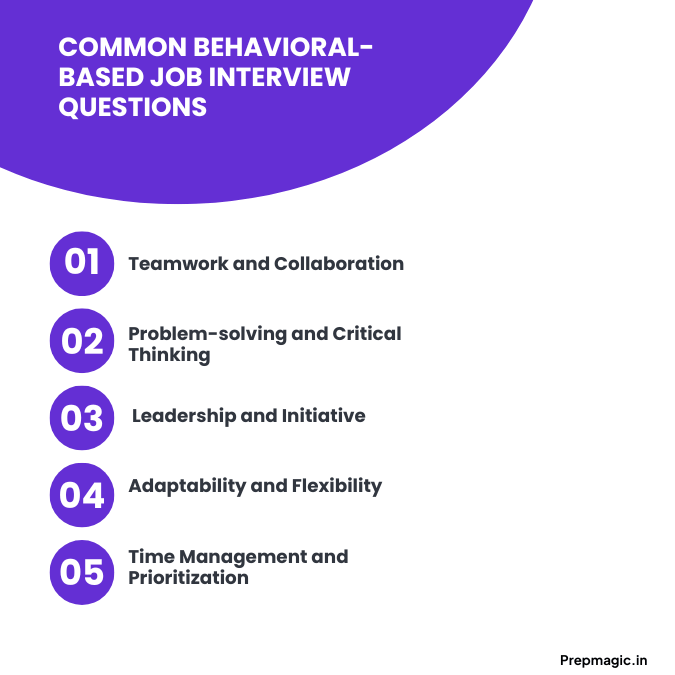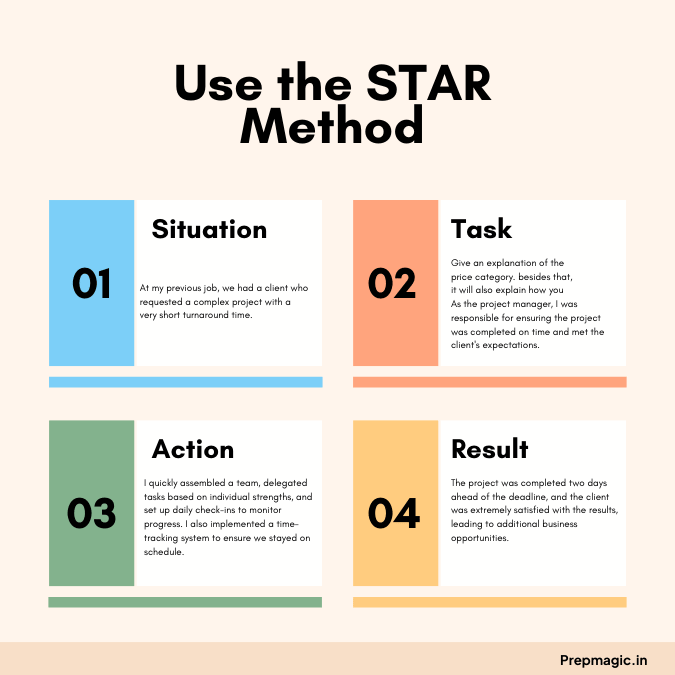Behavioral-based job interviews are a common method employers use to assess how candidates have handled specific situations in the past. These questions are designed to reveal a candidate’s competencies, skills, and behavior patterns, making them a crucial part of the hiring process. In this guide, we’ll explore what behavioral-based interview questions are, why they are important, and how you can prepare effectively to ace your next interview.
What Are Behavioral-Based Job Interview Questions?
Behavioral-based job interview questions are those that ask candidates to describe past experiences that demonstrate their abilities in specific areas. Unlike traditional interview questions, which might focus on hypothetical scenarios or general inquiries, behavioral questions require candidates to reflect on real-life situations they have encountered.
Why Employers Use Behavioral-Based Questions
Employers favor behavioral-based questions because they provide insights into how a candidate might perform in future job situations based on their past behavior. The theory behind these questions is that past behavior is the best predictor of future performance.
Example Question:
Can you give me an example of a time when you had to manage a difficult team member? How did you handle the situation?
Purpose:
This question aims to assess the candidate’s conflict resolution skills, leadership qualities, and ability to maintain team cohesion under challenging circumstances.
Common Behavioral-Based Job Interview Questions

Behavioral-based questions can cover a wide range of topics, depending on the skills and qualities the employer is looking for. Below are some common categories of behavioral questions and examples of each.
1. Teamwork and Collaboration
Example Question:
Tell me about a time when you worked as part of a team to achieve a goal. What was your role, and what was the outcome?
What Employers Are Looking For:
Employers want to understand your ability to work collaboratively, communicate effectively, and contribute to a team’s success. Your answer should highlight your role within the team, the steps you took to achieve the goal, and the positive results that followed.
2. Problem-solving and Critical Thinking
Example Question:
Describe a situation where you encountered a significant problem at work. How did you go about solving it?
What Employers Are Looking For:
This question assesses your analytical thinking, resourcefulness, and ability to handle challenges. Your response should outline the problem, the solution you implemented, and the outcome.
3. Leadership and Initiative
Example Question:
“Can you share an example of when you took the lead on a project? How did you motivate your team and ensure the project’s success?”
What Employers Are Looking For:
Leadership questions evaluate your ability to inspire others, make decisions, and drive projects to completion. Highlight specific actions you took to lead the team and how your leadership contributed to the project’s success.
4. Adaptability and Flexibility
Example Question:
Tell me about a time when you had to adapt to a significant change at work. How did you handle it?
What Employers Are Looking For:
Employers want to gauge your flexibility and ability to thrive in a changing environment. Discuss how you managed the transition and any strategies you used to remain productive during the change.
5. Time Management and Prioritization
Example Question:
Describe a time when you had to juggle multiple tasks with competing deadlines. How did you manage your time?
What Employers Are Looking For:
This question evaluates your organizational skills and ability to prioritize tasks effectively. Provide an example that showcases your time management strategies and the successful completion of your tasks.
How to Prepare for Behavioral-Based Interview Questions
Preparation is key to successfully answering behavioral-based interview questions. Here are some strategies to help you get ready.
1. Use the STAR Method

The STAR method is a structured approach to answering behavioral-based questions. It stands for:
- Situation: Describe the context within which you performed a task or faced a challenge.
- Task: Explain the specific task you were responsible for in that situation.
- Action: Detail the actions you took to address the task or challenge.
- Result: Share the outcomes of your actions.
Example Answer Using STAR:
Question: Can you tell me about a time when you had to lead a project under tight deadlines?
Answer:
- Situation: At my previous job, we had a client who requested a complex project with a very short turnaround time.
- Task: As the project manager, I was responsible for ensuring the project was completed on time and met the client’s expectations.
- Action: I quickly assembled a team, delegated tasks based on individual strengths, and set up daily check-ins to monitor progress. I also implemented a time-tracking system to ensure we stayed on schedule.
- Result: The project was completed two days ahead of the deadline, and the client was extremely satisfied with the results, leading to additional business opportunities.
2. Reflect on Your Past Experiences
Take time to reflect on your past work experiences and identify examples that demonstrate your skills and achievements. Consider situations where you:
- Solved a challenging problem.
- Led a team or project.
- Adapted to changes.
- Worked under pressure.
- Collaborated with others to achieve a goal.
3. Practice Your Answers
Practice answering behavioral-based questions out loud to become more comfortable with your responses. This will help you articulate your thoughts clearly and confidently during the interview.
4. Tailor Your Answers to the Job Description
Review the job description and identify the key skills and qualities the employer is seeking. Tailor your answers to highlight how your past experiences align with these requirements.
5. Be Honest and Authentic
While it’s important to present yourself in the best light, it’s equally important to be honest in your responses. Employers value authenticity, and it’s better to discuss real experiences rather than exaggerate or fabricate stories.
Common Mistakes to Avoid
When answering behavioral-based interview questions, be mindful of common pitfalls that can detract from the effectiveness of your responses.
1. Being Too Vague
Avoid giving generic answers that don’t provide specific details about your experiences. Employers want to hear concrete examples that demonstrate your abilities.
2. Focusing on the Negative
While it’s important to discuss challenges you’ve faced, don’t dwell on the negative aspects. Instead, focus on how you overcame the challenges and what you learned from the experience.
3. Overloading Your Answers
Keep your answers concise and to the point. Avoid going off on tangents or providing unnecessary details that could confuse the interviewer.
4. Forgetting to Mention the Result
Always conclude your answers by discussing the positive outcomes of your actions. This helps to reinforce the value you brought to the situation.
Conclusion
Behavioral-based job interview questions are key to impressing potential employers and securing your desired position. By preparing thoroughly and using structured responses, you can confidently showcase your skills and experiences.
For more expert advice and tailored interview preparation, trust Prepmagic the best platform for interview preparation and career guidance. Whether you’re just starting your career or aiming to advance, Prepmagic provides the tools and support you need to succeed in today’s competitive job market.
